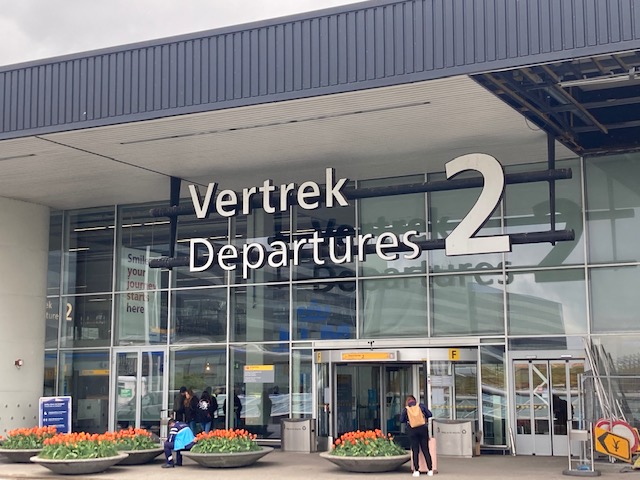EU countries push for changes to air passengers’ compensation
Claudia Delpero
EU transport ministers pushed for several changes to EU rules on air passengers’ rights at their meeting on Thursday in Luxembourg, a decision that has been 12 years in the making and that still requires the agreement of the European parliament. The Netherlands was among the countries backing the new deal.
But consumer groups and some MPs argue the changes will remove the right to compensation for some passengers and airlines say the plans make the compensation regulations even more complex.
A key change concerns the thresholds for compensation in case of flight delays. EU governments agreed that compensation of €300 should be due for delays of over four hours for journeys under 3,500 km and journeys within the EU, and of €500 for delays of over six hours for journeys over 3,500 km.
Currently, airlines must pay compensation for delays of over three hours for short flights and four hours for long flights, with amounts ranging between €250 and €600 depending on the distance.
“Although the deal improves some rights on paper, giving consumers improved access to information in case of disruption, care and assistance, it represents a substantial rollback of other key rights,” said Agustín Reyna, director general of European consumer association BEUC, which counts Consumentenbond among its members.
“The new eligibility thresholds will deprive the majority of passengers from their compensation rights as most delays are between two and four hours,” he said.
Airlines can currently deny compensation in case of “extraordinary circumstances” beyond their control, such as the weather, but in the future will have to prove they took “all reasonable steps” to prevent disruptions, according to the EU Council position.
The new rules also give compensation to passengers who are informed of the cancellation of their flight less than 14 days before departure. They will also be able to arrange their own rerouting and claim reimbursement of up to 400% of the original ticket price. Passengers should also be reimbursed for refreshments, food and accommodation if the airlines do not provide them in case of delays.
The rules also require air companies to provide pre-filled compensation forms and tight deadlines to respond to claims. Passengers would have up to six months from the disrupting event to submit a request or a complaint and the airline will have to reply or compensate within 14 days.
To “disincentivise” no-show clauses, passengers who are denied boarding on a return flight because they did not take the outbound flight, would also be entitled to compensation.
New rights and complexity
Dariusz Klimczak, minister of infrastructure of Poland, which holds the rotating presidency of the EU Council, said “the revised rules will bring over 30 new rights to the air passengers, applicable from the moment when they buy a ticket, until they arrive at their destination, and in some cases even beyond”.
But Dutch MEP Mohammed Chahim, deputy president of the Socialists & Democrats group, said that people are not asking air companies for a favour.
“They pay good money for the services and when these services are not delivered people deserve proper treatment and reasonable compensation,” he said in a statement.
“The new rules will mean that passengers have less rights, because the conditions for compensation have been made more stringent. It leaves travellers with less certainty, and gives more leniency to airlines – which is a totally wrong set of priorities.”
Ourania Georgoutsakou, managing director of A4E (Airlines for Europe), the organisation representing the industry in Brussels, complained that “rather than providing delay thresholds of five and nine hours that would save up to 70% of rescuable cancelled flights, member states have … introduced even more complexity.”
Thank you for donating to DutchNews.nl.
We could not provide the Dutch News service, and keep it free of charge, without the generous support of our readers. Your donations allow us to report on issues you tell us matter, and provide you with a summary of the most important Dutch news each day.
Make a donation